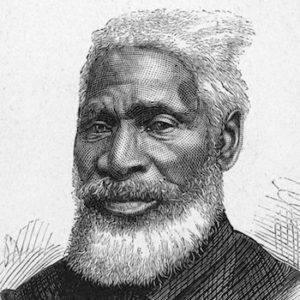
Josiah Henson
This date marks the birth of Josiah Henson in 1789. He was an 18th-century Black abolitionist.
The first antislavery law in Canada was passed by the British Parliament in 1793. For the next 68 years, it is estimated that 50,000 Black Americans entered Canada for safety and freedom. One of them was Josiah Henson, a former slave from Kentucky. During his lifetime, three masters owned Henson. Henson started preaching to raise money in the hope of buying his freedom. His master took the money that Josiah had earned and then raised the price of Henson's freedom to $1,000.
He returned to his master's plantation after a plot to secretly sell Josiah fell through, where he informed his wife of his plan to escape. Soon after, he, his wife, and their four children fled to Canada. The Henson family struggled through sickness, wolves, and starvation on their journey to freedom. A tribe of Native Americans assisted the family along the way. Finally, on October 28, 1830, after many hardships, they reached freedom. He stayed in Canada only a short time before deciding to get involved with the Underground Railroad.
Henson made several trips and led over 200 slaves to Canada. During his time in Canada, Josiah Henson started the Dawn Institute in Chatham, Ontario, a refuge for fugitive slaves where they were taught trades to support themselves and their families. When Henson went to the World's Fair in London, he became the first ex-slave to be granted an audience with Queen Victoria. He is also believed to have inspired Uncle Tom in Harriet Beecher Stowe's antislavery novel "Uncle Tom's Cabin." Josiah Henson was a true hero and humanitarian, playing a pivotal role in the lead-up to the Emancipation Proclamation.
Josiah Henson died on May 5, 1883, in Ontario, Canada.
The African American Atlas
Black History & Culture an Illustrated Reference
by Molefi K. Asanta and Mark T. Mattson
Macmillan USA, Simon & Schuster, New York
ISBN 0-02-864984-2